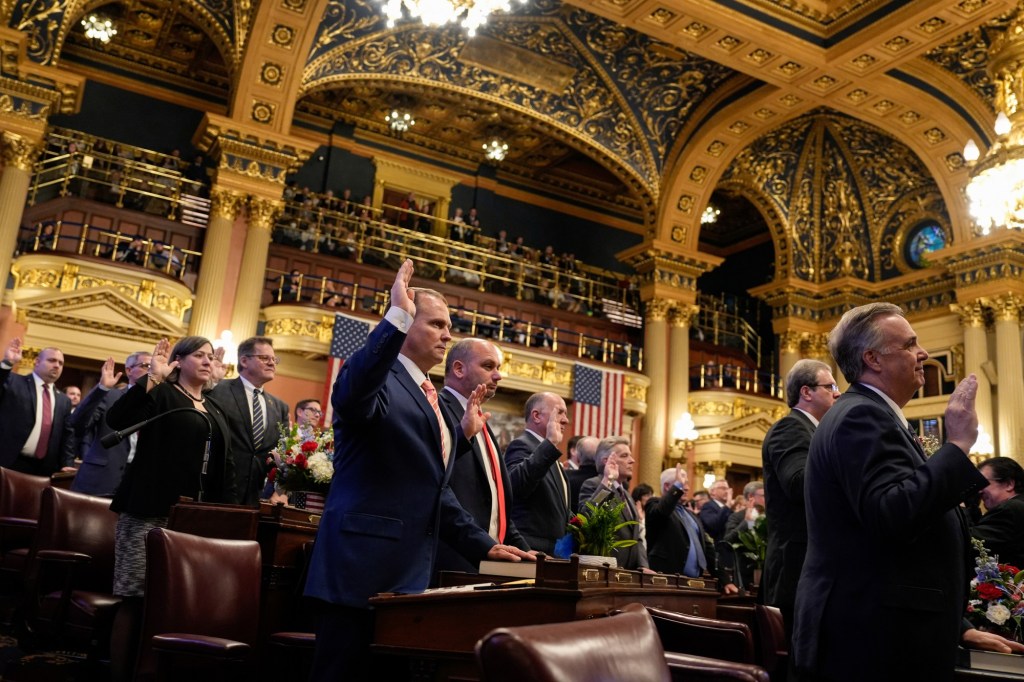In 2009, Pennsylvania’s Supreme Court made a ruling in the case of Council 13, AFSCME v. Commonwealth that, it could be argued, has done citizens the disservice of encouraging budget delays in Pennsylvania.
In short, justices found that the federal Fair Labor Standards Act superseded the state Constitution, requiring that state workers continue to receive pay for services rendered, even when the General Assembly has not approved a budget. In a legal sense, perhaps it’s a sound ruling, based on the most established tenets of law. In a practical sense, perhaps it is also a necessary ruling — there are plenty of state workers who provide essential services to constituents even as the budgets are bantered about in Harrisburg, and those serving citizens by working in the state’s parks, DMVs and prisons deserve their honest day’s pay for an honest day’s work.
In a realistic sense though, the ruling hasn’t benefitted Pennsylvania, especially during times of budget contention like we’re experiencing in the commonwealth now.
As the state’s budget impasse hits the 115-day mark Thursday, grasp that while counties consider taking out loans to make ends meet with the state failing to make billions of dollars worth of payments promised to keep local governments running… and nonprofits that provide vital services like pre-K, day care and support for victims of domestic violence and sexual abuse consider a steep, struggle to stave off painful cuts to those services… and public school districts try to make do without millions in subsidies the state provides to protect the most vital services taxpayers fund, the proper education of our children… the lawmakers tasked with coming up with solutions largely aren’t dealing with the same financial struggles.
As state employees affected by that Supreme Court decision, they’re still collecting paychecks, after all.
Presented with an opportunity to put a pause on their paychecks for the duration of the impasse earlier this summer, only 10 members of Pennsylvania’s General Assembly — all from the 203-member House of Representatives — elected to do so. While some have decided not to cash at least one check during the stalemate, it’s still somewhat stunning that 96% of the assembly are at least keeping their options open to accept pay, per diems and expenses associated with their positions.
Add into the equation that our legislators make at least $110,000 per year, and that Pennsylvania has the second-largest state legislature in the country — one more member than California and Ohio combined — and it gets easier to understand taxpayer frustration. That’s a lot of funds dedicated to a governing body tasked with compromising on a budget, and going on four months of failure to get that job done. With no end in sight. With little sign of meaningful compromise between the Democrat-controlled House and Republican-controlled Senate in the offing.
At one time years ago, there was a check against this: If they didn’t go above and beyond to negotiate budget compromises, lawmakers didn’t get paid. The 2009 Supreme Court ruling changed that within Pennsylvania’s borders and led to legitimate questions about the incentives lawmakers have to go all-in on across-the-aisle negotiations.
When legislators have no financial skin in the game, taxpayers are not incorrect to surmise that it’s easier for them to dig their heels in on party-line politics over the type of diligent compromise needed to get budgets passed.
Not all lawmakers disagree with that stance. The bipartisan House Bill 1682 — co-sponsored by local reps Jim Haddock, D-118, Pittston Twp. and Brenda Pugh, R-120, Dallas Twp. — would suspend pay to the state’s governor, lieutenant governor and members of the General Assembly during a budget impasse, if passed. It was sent to the Appropriations Committee in June and sits there still.
Budget impasses have become far too common in Pennsylvania, and good government demands fairness and understanding of those who struggle in times like this. The Supreme Court ruling is perhaps based in sound law, but suspending pay during impasses, and making legislators feel some of the financial pain their constituents will, is the right thing to do.

